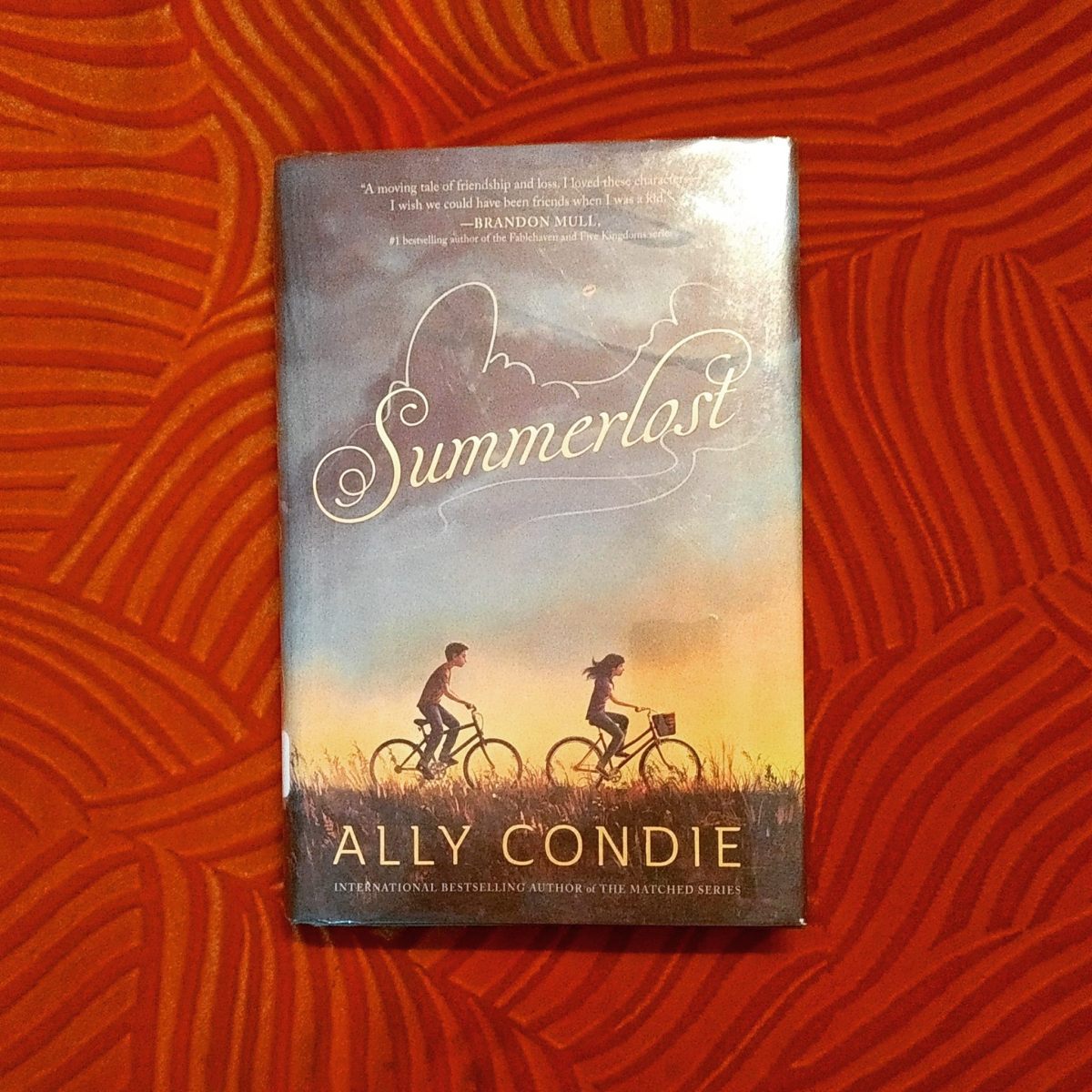“The night was shadows and wind and the smell of a storm on the way, for crying until the tears were gone but the ache was left. A night for imagining that you could step out onto the windowsill and say hello to the dark, say I am sad and have the wind say I know. You could say I am alive and the trees would sigh back We are too. You could whisper I am alone and everything ends and the stars in the sky would answer We understand. Or maybe it’s ghosts telling you all these things, saying. We know, we’re alone too, we understand everything and nothing ends.”
Summerlost, Ally Condie
Somewhere in between the childlike innocence of a twelve-year-old’s narrative of loss and belonging, Ally Condie uses the voice of Cedar Lee to speak the above monologue, of storms and shadows and winds and stars in the night befriending you, holding you, and although the sense of loss is never truly gone, it is shared.
I started reading Summerlost last night, and soon, there was this bludgeoning ache inside of me to finish it by today. And even if the novel is set in the beautiful summer haze of Utah, far away from the hustles of overpopulated cities, when I closed the book after the last words, I couldn’t help but say hello to the gray gloom that it leaves behind, as if even in the mist of melancholy, loss can be perceived as something beautiful, tangible and bearable.
Summerlost is about a child’s journey to deal with loss, the absence of family, death and newly found friendship; it is about the hollowing gap that only the loss of a loved one can leave behind and the repercussions of the same.
The story begins when Cedar, along with her mother and younger brother Miles as they settle in the small town of Iron Creek, after the deaths of her father and youngest brother Ben, in the summer months at a new house while the Shakespearean Summerlost festival commences. Befriending the quirky “nerd-on-a-bike” Leo Bishop, the two friends start working in the concession stand, selling candies and programs to the visitors of the festival before the plays begin every evening.
Alongside, bonding over loss and silence, Cedar comes closer to her brother Miles, as the shadow of Ben looms overhead, while her borderline neurotic mother concocts newer schemes of revamping the house to deal with the loss of a child and her husband.
Ally Condie merges past with present like beads on a string as the novel pushes forward, using the fictional memory of the life and times of an actress who made it big in Hollywood before dying under mysterious circumstances. Initially used only as a recurring symbol of memory overlapping time lines, Lisette Chamberlain, the actress, slowly merges into the plot itself, as if her growth traced in the story is a mirror image to Cedar’s own character alignment throughout the events of the novel.

But what outshines every other factor in the novel is Condie’s lucidity in using everything, from trees to bad soap operas to turkey vultures and little things left on Cedar’s windowsill, as an imagery of loss and new beginnings. The juxtaposition of every symbol over the underlying sense of loss is not fleeting either, it persists across pages, sometimes only found as the most thwarting of one-liners and in others as a monologue that rises and dwindles rhythmically to the beat of its words, making Summerlost a book which is better left perceived rather than read word by word.
Another brilliant use of language is the characterization of Ben, the late youngest brother of Cedar, who throughout the book has been described with suffering from symptoms of autism, without actually mentioning the term itself. Contemporary young adult novels have used mental illness as an ongoing plot motif throughout the scale of the story, sometimes going in for page by page descriptions of the illness in depth. Yet, Condie uses the innocence of Cedar’s childlike narrative to describe an almost inscrutable disease in the simplest of terms. That itself is quite an achievement.
The only spot in the sun is the climactic end of the story, perhaps considered anti-climactic by many. However, I feel I must defend that too, because a novel like Summerlost doesn’t necessarily need a bombastic climax to weave together its plot as a whole. It should beat, drift and dwindle by her own terms, leaving only a promise to return after.
I enjoyed Summerlost thoroughly, and one might say it is one of the best books I have read this fall. It was a speedy read, yet also touched with the weight of soulful realizations and melancholic half-smiles in the flow of its words, leaving only an aftertaste of the memory of loss and future promises behind.
